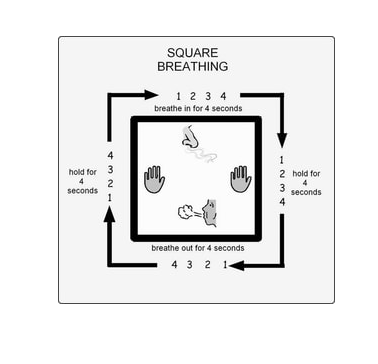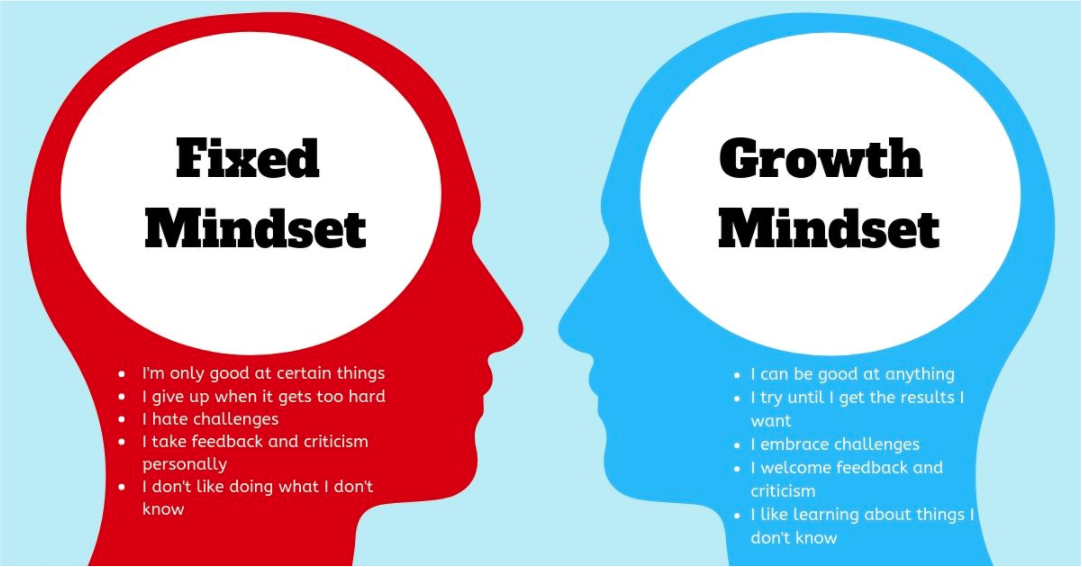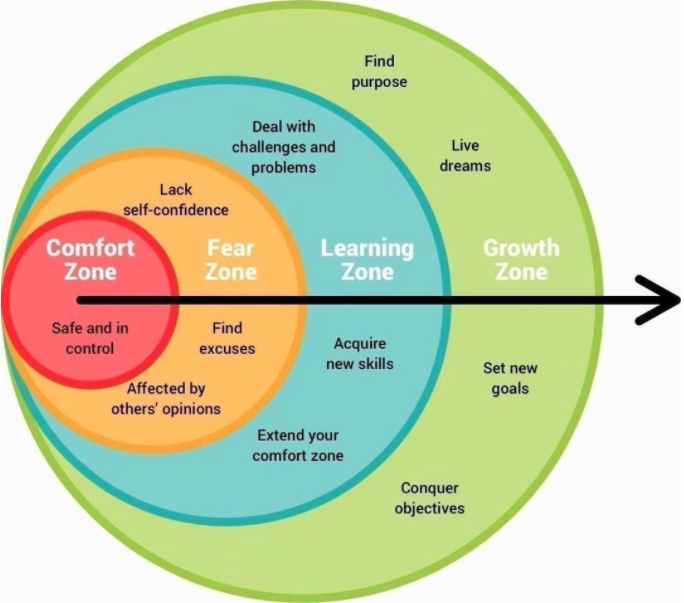Mental Wellness
Mental Health vs. Mental Illness
Watch and read below.
Independent Anxiety Management Program
If you would like to work on managing your anxiety, take some time to work through these anxiety management modules online.
Sleep
7-Step guide to better sleep.
Sleep Diary
You can track and improve your sleep! By tracking your sleep you can begin to notice things that you do that improve your sleep. Copy out some or all of the document below to begin working on your sleep habits.
Exercise
Physical activity can help greatly with maintaining mental wellbeing. The endorphins that the brain releases during exercise help to improve mood, energy levels and even sleep. Together, these positive effects help to improve self-confidence and resilience.
Exercise can:
During exercise, you focus on physical activity, developing new skills and achieving a sense of accomplishment.
Shared physical activities can give you a sense of belonging and companionship. A particular focus, such as a sport, may even relieve some of the social pressure of making new friends. Over time, the act of sharing experiences with others, developing rapport and working towards common goals can help you focus and develop the confidence to speak up in class. It can also help foster friendships in school if the activities are school-based.
Seeing and appreciating what your body can do, rather than how it looks, is a great way for you to build a positive body image.
Taken from https://www.aboutkidshealth.ca/article?contentid=641&language=english
Exercise can:
- reduce anxiety
- improve relationships
- improve body image.
During exercise, you focus on physical activity, developing new skills and achieving a sense of accomplishment.
Shared physical activities can give you a sense of belonging and companionship. A particular focus, such as a sport, may even relieve some of the social pressure of making new friends. Over time, the act of sharing experiences with others, developing rapport and working towards common goals can help you focus and develop the confidence to speak up in class. It can also help foster friendships in school if the activities are school-based.
Seeing and appreciating what your body can do, rather than how it looks, is a great way for you to build a positive body image.
Taken from https://www.aboutkidshealth.ca/article?contentid=641&language=english
Positivity
Here are some steps you can take toward having good mental health.
Ideas to build positivity into your life
Happiness takes work. Here are a list of activities that have been found to help build sustained happiness, when practiced regularly. The exercises that are described include gratitudes, acts of kindness, physical exercise, meditation, positive journaling, and fostering relationships.
Here's a description of how to complete a Gratitude Journal
The goal of a gratitude journal is to increase our focus on positive experiences, which improves our well-being.
Deep Breathing
|
Square breathing is an excellent way to calm down when you are feeling anxious, panicked, excited or angry. When we get stressed we tend to take very short, shallow breaths that reinforce those feelings. Deep breathing sends a signal to your brain to relax. You can trace the outline of the square as you are breathing to keep you focused. When you are taking proper deep breaths, it can be helpful to imagine you are inflating a balloon in your belly and trying to make it expand. |
Guided Deep Breathing Exercise
There are many ways to do deep breathing, try this one too!
Relaxation
Progressive muscle relaxation is one of many types of relaxation techniques, it will teach you to identify where tension is being held in your body, which will allow you to release it. Give this video a try!
Growth Mindset
You can choose to think better about yourself, your capabilities, and your potential. You can choose a growth mindset.
Our comfort zone is, well, comfortable! In order to learn and grow we sometimes need to leave our comfort zones and face our fears.
Grief
Grieving is a natural reaction to a death.
Grief is a natural reaction to death and other losses. However, grieving does not feel natural because it may be difficult to control the emotions, thoughts, or physical feelings associated with a death. The sense of being out of control that is often a part of grief may overwhelm or frighten us. Grieving is normal and healthy, yet we sometimes resist and reject grief. Allowing ourselves to accept the reality that we are grievers allows us to do our grief work and to progress in our grief journeys.
Each grieving experience is unique.
Grieving is a different experience for each person. People grieve for different lengths of time and express a wide spectrum or emotions. Grief is best understood as a process in which bodily sensations, emotions, thoughts, and behaviours surface in response to the death, its circumstances, the past relationship with the deceased and the realization of the future without the person. For example, sadness and crying may be an expression of grief for one person, while another may respond with humor and laughter.
There are no “right” and “wrong” ways to grieve.
Sometimes people express strong opinions about “right” or “wrong” ways to grieve. But there is no correct way to grieve. Coping with a death does not follow a simple pattern or set of rules nor is it a course to be evaluated or graded.
Every death is unique and experienced differently.
The way people grieve differs according to personality and the particular relationship they had with the deceased. They typically react in different ways to the death of a parent, sibling, grandparent, child, or friend.
The grieving process is influenced by many factors.
The impact of a death on a person relates to a combination of factors including:
Grief is ongoing.
Grief never ends, but it does change in character and intensity. Many grievers have compared their grieving to the constantly shifting tides of the ocean; ranging from calm, low tides to raging high tides that change with the seasons and the years.
Grief is a natural reaction to death and other losses. However, grieving does not feel natural because it may be difficult to control the emotions, thoughts, or physical feelings associated with a death. The sense of being out of control that is often a part of grief may overwhelm or frighten us. Grieving is normal and healthy, yet we sometimes resist and reject grief. Allowing ourselves to accept the reality that we are grievers allows us to do our grief work and to progress in our grief journeys.
Each grieving experience is unique.
Grieving is a different experience for each person. People grieve for different lengths of time and express a wide spectrum or emotions. Grief is best understood as a process in which bodily sensations, emotions, thoughts, and behaviours surface in response to the death, its circumstances, the past relationship with the deceased and the realization of the future without the person. For example, sadness and crying may be an expression of grief for one person, while another may respond with humor and laughter.
There are no “right” and “wrong” ways to grieve.
Sometimes people express strong opinions about “right” or “wrong” ways to grieve. But there is no correct way to grieve. Coping with a death does not follow a simple pattern or set of rules nor is it a course to be evaluated or graded.
Every death is unique and experienced differently.
The way people grieve differs according to personality and the particular relationship they had with the deceased. They typically react in different ways to the death of a parent, sibling, grandparent, child, or friend.
The grieving process is influenced by many factors.
The impact of a death on a person relates to a combination of factors including:
- Social support systems available (family, friends, and/or community)
- Circumstances of the death – how, where, and when the person died
- The nature of the relationship with the person who died – harmonious, abusive, conflictual, communicative
- The person’s level of involvement in the dying process
- The emotional and developmental age of the person grieving
- The person’s previous experience with death
Grief is ongoing.
Grief never ends, but it does change in character and intensity. Many grievers have compared their grieving to the constantly shifting tides of the ocean; ranging from calm, low tides to raging high tides that change with the seasons and the years.
Your Grieving Rights
Nine Helpful Ideas for Your Grief Journey
Grief is exhausting. It takes a lot of time and energy and can wear you out. That is why anyone who is going through grief needs love, understanding, and encouragement. Grief is a journey and no two journeys are alike. However, here are some helpful hints that you can use along the way.
Taken from https://highland.slcschools.org/academics/counseling-center/documents/HealingActivitiesforGrievingChildrenandTeens.pdf
- To know the truth about the death, the deceased, and the circumstances.
- To have questions answered honestly.
- To be heard with dignity and respect.
- To be silent and not share your grief emotions and thoughts.
- To not agree with the perceptions and conclusions of others.
- To grieve any way you want without hurting yourself or others.
- To feel all the feelings and to think all the thoughts of your own unique grief.
- To not have to follow the “Stages of Grief”.
- To grieve in your own unique and individual way.
- To be angry at death, at the person who died, at yourself, at others, etc. for a period of time.
- To have your own theological and philosophical beliefs about life and death.
- To not be taken advantage of in this vulnerable mourning condition and circumstances.
Nine Helpful Ideas for Your Grief Journey
Grief is exhausting. It takes a lot of time and energy and can wear you out. That is why anyone who is going through grief needs love, understanding, and encouragement. Grief is a journey and no two journeys are alike. However, here are some helpful hints that you can use along the way.
- Eat healthy foods and snacks. A healthy diet will keep your physical body in good health and will promote better well-being.
- Get lots of rest. Take naps—remember grieving takes a lot out of you!
- Talk about your feelings. Find someone with whom you feel comfortable sharing your thoughts and emotions.
- Exercise. Physical activity will help to release negative energy.
- Laugh often. Laughing, even when you are sad or angry, is healthy.
- Spend time with friends.
- Write down your feelings. Keep a diary or journal.
- Draw pictures or paint. Art is a fantastic way to express yourself!
- Don’t rush grief. It takes time. You do not “get over” grief. In time, however, you will accept things intellectually and learn how to live with grief.
Taken from https://highland.slcschools.org/academics/counseling-center/documents/HealingActivitiesforGrievingChildrenandTeens.pdf
Symmes Junior High School / D'Arcy McGee High School
925 Boulevard du Plateau, Gatineau, Quebec J9J 3G2
Phone: 819.684.7472
Fax: 819.684.7521
925 Boulevard du Plateau, Gatineau, Quebec J9J 3G2
Phone: 819.684.7472
Fax: 819.684.7521



